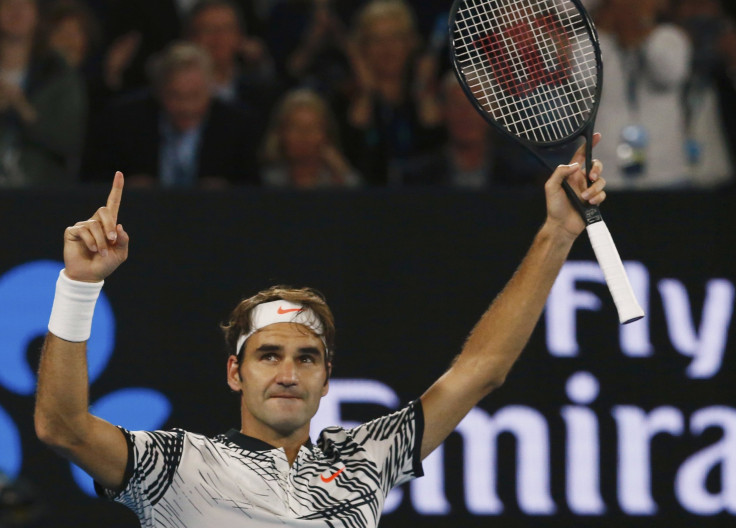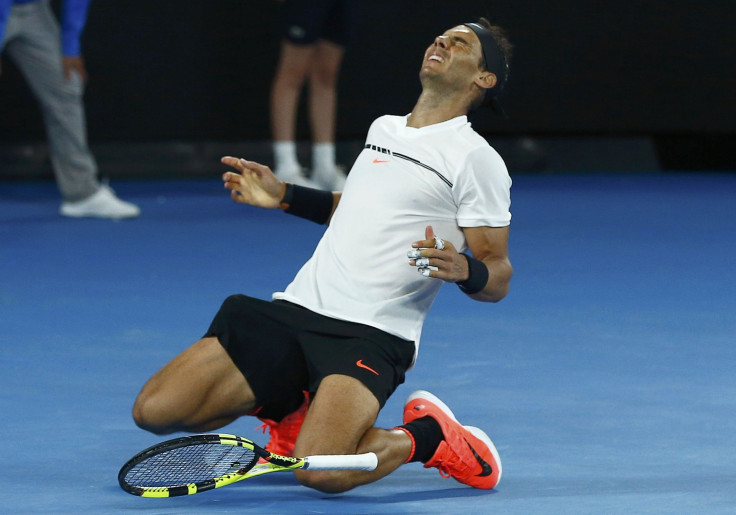Roger Federer vs. Rafael Nadal 2017: Prediction, Betting Odds, Preview For Australian Open Dream Final

Just three months ago, Roger Federer joined Rafael Nadal at the launch of the Spaniard’s academy on his home island of Mallorca. As Federer tells it, the two were discussing their inability to play even an exhibition match like a couple of geriatrics lamenting their various ailments
“I told him, look I wish we could do a charity match or something but I was on one leg, he had the wrist injury and we were playing some mini tennis with some juniors and we were like ‘that’s the best we can do right now.’”
Fast forward to Sunday in Melbourne and the two will meet in a record-extending ninth Grand Slam final and without question their most unlikely. Indeed, many, including Nadal, had wondered whether the two men would ever be back on such a stage, never mind facing off with each other once more.
Nadal’s last Grand Slam victory, and last Grand Slam final, came nearly three years ago at the 2014 French Open. Since then he had failed to make even a semifinal having been plagued by various injuries and a resulting loss in his once unwavering self-belief. Just as he was getting back to something like his best last spring, a wrist injury forced his withdrawal from the French Open and then Wimbledon. While he rushed back for the Olympics, he was forced to call time on his year last October.
“When you work hard, when you have some tough moments, last year was tough for me because it takes a while to come back to the level I had after I started playing well at Indian Wells. And in Roland Garros when I had to go back home it was a tough moment because I know how tough it was to be back out there at that level.”
He entered the Australian Open seeded down in ninth position and with few rating his chances of getting more than a few wins under his belt to build fitness and confidence going forward for the rest of 2017. Instead, the 30-year-old with a body bearing years of wear and tear has roared through the draw, showing the next generations that he is far from a spent force.
Teenage German starlet Alexandr Zverev was dismissed in five sets, third seed Milos Raonic was brushed aside in three and Friday he outlasted Grigor Dimitrov, a player long seen as the next big thing, in a five-set epic.

“I never ever dreamed to be back in the final of the Australian Open in the second tournament of the year after a lot of months without competing, but here I am,” he said his post-match on-court interview. “I feel lucky and very, very happy.”
Even more surprising is the identity of the man who will be on the opposite side of the net Sunday.
It was following last year’s Wimbledon that Federer announced he was sitting out the rest of 2016 to address a knee injury first suffered in the days following last year’s Australian Open.
To many, it signaled that at the age of 35 his time competing for Grand Slam titles was now done. To Federer, though, it was precisely the opposite. The fact that he was willing to sacrifice the second half of the year showed that he still believed he could compete for the very top prizes and for several more years to come.
The decision has been vindicated far earlier than even he could have imagined.
“Now it seems like it was a good thing to do,” he said Thursday. “You can only ever do so much treatment to feel decent. What I've just come to realize is when you don't feel well, you have too many problems going on, you just won't beat top-10 players.
“That's where both, I guess, Rafa and myself said, Okay, enough of this already. Let's get back to 100 percent, enjoy tennis again, enjoy the practice. Not just practice, treatment, practice, treatment, match, treatment. All the time all you're doing is fighting the fire.”
Adding to the similarities between the two, Federer, seeded down at 17th for the event, has also battled through two five-set matches over younger men. In the fourth round, he edged out fifth seed Kei Nishikori before, in the semifinals, he survived a fierce fight back from compatriot and three-time Grand Slam winner Stan Wawrinka.
On Sunday, it will now either be a record-extending 18th Grand Slam title for Federer or a 15th for Nadal to put him on his own behind Federer with the second most all time.
Prediction: It is a final that tennis fans could have only dreamt of, and, while it may not quite match the heights of their 2008 Wimbledon final epic, it should be a thrilling and closely fought contest. But there are two factors that give Federer the edge. First, there is the quickness of the courts in Melbourne, which favor the more attacking game of the Swiss. And then there is the fact that Federer will have had an extra day to recover from his five-set semifinal, which was also nearly two hours shorter than Nadal’s. No. 18 should finally be heading his way.
Federer in five sets
Betting odds
Roger Federer: 8/11
Rafael Nadal: 11/10
© Copyright IBTimes 2024. All rights reserved.











